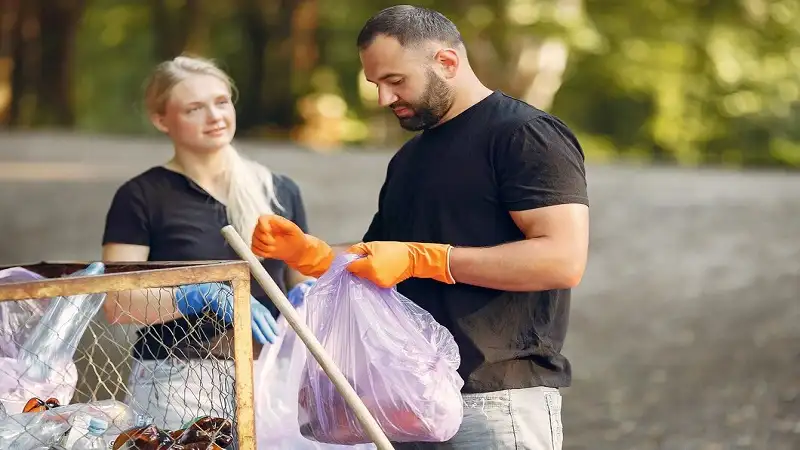In an era where sustainability is no longer an option but a necessity, the integration of artificial intelligence (AI) into waste management systems is revolutionizing the industry. Companies like Bollegraaf AI, Greyparrot, and Airivero are leading the charge, using cutting-edge technology to enhance recycling processes, reduce environmental impact, and streamline operations. The Bollegraaf AI Greyparrot Airivero WashingtonPost has highlighted these innovations, underscoring their potential to reshape how we handle waste globally.
The Need for Advanced Waste Management Solutions
The world generates billions of tons of waste annually, with much of it ending up in landfills, oceans, or incinerators. This poses significant environmental challenges, including greenhouse gas emissions, water pollution, and loss of valuable resources. Traditional waste management methods are often inefficient, labor-intensive, and unable to handle the growing volume and complexity of waste streams.
This is where companies like Bollegraaf AI, Greyparrot, and Airivero step in, offering AI-powered solutions to revolutionize waste sorting, recycling, and management. These technologies promise greater accuracy, efficiency, and sustainability, making them essential tools in the global fight against waste-related issues.
Bollegraaf AI: Revolutionizing Recycling Systems
Bollegraaf Recycling Solutions, a global leader in waste processing systems, has embraced AI through its Bollegraaf AI technology. The company specializes in designing and manufacturing sorting systems that use advanced robotics and machine learning to identify and separate various materials efficiently.
Key Features of Bollegraaf AI:
- High-Precision Sorting: Using AI-powered optical sensors, Bollegraaf AI can differentiate between materials like plastics, paper, and metals with remarkable accuracy.
- Reduced Contamination: Improved sorting precision reduces contamination in recycling streams, ensuring higher-quality recycled materials.
- Increased Operational Efficiency: Automated sorting reduces the need for manual labor and accelerates processing times.
The Washington Post praised Bollegraaf AI for its ability to meet the growing demand for sustainable waste management solutions while addressing labor shortages in the recycling industry.
Greyparrot: AI-Powered Waste Recognition
Greyparrot, a UK-based AI startup, has developed waste recognition systems designed to optimize recycling and waste sorting processes. By using computer vision technology, Greyparrot identifies and categorizes waste items on conveyor belts in real-time.
How Greyparrot’s Technology Works:
- AI-Based Detection: Cameras equipped with AI algorithms scan waste streams, identifying items based on their shape, size, and material composition.
- Data Analytics: Greyparrot collects data on waste composition, providing insights to improve recycling operations and reduce waste.
- Real-Time Feedback: The system offers instant feedback to facility operators, enabling swift adjustments to sorting processes.
Greyparrot’s innovations have been highlighted in the Washington Post as a game-changer for municipal recycling programs, allowing cities to achieve higher recycling rates and reduce landfill dependency.
Airivero: Streamlining Waste Transport and Disposal
Airivero is another trailblazer in the waste management sector, focusing on optimizing the logistics of waste transport and disposal. The company combines AI and IoT (Internet of Things) technologies to create smart systems for managing waste collection and routing.
Airivero’s Contributions to Waste Management:
- Smart Routing: AI algorithms calculate the most efficient routes for waste collection vehicles, reducing fuel consumption and emissions.
- Predictive Maintenance: IoT sensors monitor equipment performance, enabling proactive maintenance and minimizing downtime.
- Dynamic Scheduling: Airivero adapts collection schedules based on real-time data, ensuring timely waste disposal without unnecessary trips.
The Washington Post has recognized Airivero’s role in improving urban waste management, particularly in densely populated cities where efficient logistics are crucial for maintaining cleanliness and sustainability.
Washington Post’s Perspective on AI in Waste Management
The Washington Post has been at the forefront of reporting on technological advancements in waste management, emphasizing the transformative impact of companies like Bollegraaf AI, Greyparrot, and Airivero. According to the publication, AI-driven solutions offer a triple benefit: economic efficiency, environmental protection, and enhanced public health.
Key Insights from the Washington Post:
- Scalability: AI technologies can be scaled to handle waste management challenges in both urban and rural areas.
- Job Creation: While automation reduces manual labor in sorting processes, it also creates opportunities for skilled jobs in AI system management and maintenance.
- Global Reach: These innovations are not limited to developed nations; they hold promise for improving waste management in developing countries as well.
The Future of Waste Management with AI
Challenges Ahead
Despite the promising advancements, there are challenges to overcome:
- Cost of Implementation: High upfront costs for AI systems may deter smaller municipalities or companies.
- Data Security: As with any AI system, ensuring the privacy and security of data is critical.
- Adaptation to Local Contexts: Solutions must be tailored to local waste management needs and regulatory environments.
Opportunities for Growth
- Public-Private Partnerships: Collaboration between governments and private companies can accelerate the deployment of AI technologies.
- Innovation Grants: Funding from environmental organizations and tech incubators can support research and development in this field.
- Consumer Awareness: Educating the public about proper waste disposal and recycling can amplify the impact of AI systems.
Conclusion
The integration of AI in waste management, spearheaded by companies like Bollegraaf AI, Greyparrot, and Airivero, is a pivotal step towards a sustainable future. These technologies are not only optimizing recycling and disposal processes but are also redefining how we perceive and handle waste. As highlighted by the Washington Post, the potential of AI in this sector is immense, promising significant environmental, economic, and social benefits.
By embracing these innovations, we can move closer to achieving a circular economy where waste is minimized, resources are reused, and the planet is preserved for future generations. Read more FashionCharm.
